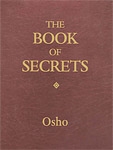Chapter 1 Publishing whispers
We approach Osho, we confront his thoughts...
We doubt, we shock, we relax, we love, we meditate...
On December 11, 1931, Osho was born in India. In his early years, he graduated with honors from the Department of Philosophy, University of Sharjah, India, and won the All-India Debate Championship.Afterwards, he served as a professor in the Department of Philosophy, Jaypope University, India for nine years.During his lifetime, he traveled around India and countries around the world, giving academic lectures.So far, according to his lectures, more than 650 kinds of books have been compiled and published, translated into more than 30 kinds of languages, and sold well all over the world.He himself died on December 21, 1990.
The theme of Osho's speech can be summed up in one word: people.He has always paid attention to the living conditions of human beings after industrial civilization, and to human beings themselves.His examination of the backward feudal consciousness, his criticism of capitalist material sensuality and his questioning of the ultimate concern of human beings are unique and whole-hearted.His speeches are friendly, equal, approachable, full of wisdom, humor, and spirituality—we have selected 5 from his speech collection——
"The Golden Words of Osho's Wisdom" is dedicated to readers.
As a great man and a thinker, Osho's thoughts have two distinctive features: First, he interprets his thoughts in questions and answers; in Osho's view, modern people are "people with problems", and asking questions And solutions are an important way of life for modern people.Osho insisted that people experience the truth for themselves, rather than acquire knowledge and beliefs from others.Second, he opposed relying too much on reason (mind) and advocated focusing on experience (the experience process of the heart).The "experience" of experience comes from people's meditation. Therefore, Osho believes that meditation is a very beautiful thing, and it is the motivation for modern people to love life, work hard, trust each other, be full of love, and be rich in spirit.Undoubtedly, Osho's thought of "meditation" not only bears the imprint of Western existentialism, but also is rooted in Eastern mysticism, especially the Chinese thought of Laozi and Zhuangzi.If many contemporary Western thinkers are looking for the "natural home" of the soul in modern civilization, then Osho is an Eastern thinker who is actively creating such a "natural home" for the soul.This is also the reason why his thoughts (writings) have caused great shock in Western countries and in Southeast Asia.Some people call him another great thinker in India after Tagore.
At present, the material civilization is highly developed, and the lust for money is also expanding day by day.The call and reconstruction of spiritual civilization has attracted the attention of governments around the world and all levels of society.The reason why Osho's thoughts (works) have aroused enthusiastic responses in the East and the West is precisely in this aspect to a certain extent that it shows its unique, fresh, and referenced social criticism function.
It is true that Osho's love for life and his concern for "existence" come from his personal experience, so the flaws and contradictions in his thinking are everywhere (such as the nihilism and idealism tendencies in his thinking) .As Osho himself advised during his lifetime, he did not wish to impose his thoughts on anyone, let alone turn his thoughts into our thoughts; he only hoped that people would share his thoughts and feel his experience, and each of us should have our own life experience, our own way of being, our own "mind" and "heart" - this is what we editors hope to remind readers of.
Only by approaching Osho in an inspecting and critical way, and entering his thoughts in a way of sharing and feeling, can we comprehend the true meaning of existence from his unique, fresh, contradictory and distinctive thoughts.
There is no truth in Osho's thoughts, only the thinking clues about the truth or towards the truth, only the unique experience and fresh experience about the "existence" of modern people...
Let us interpret Osho on the other side of reason and share the fragrance of his wisdom...
December 1995

